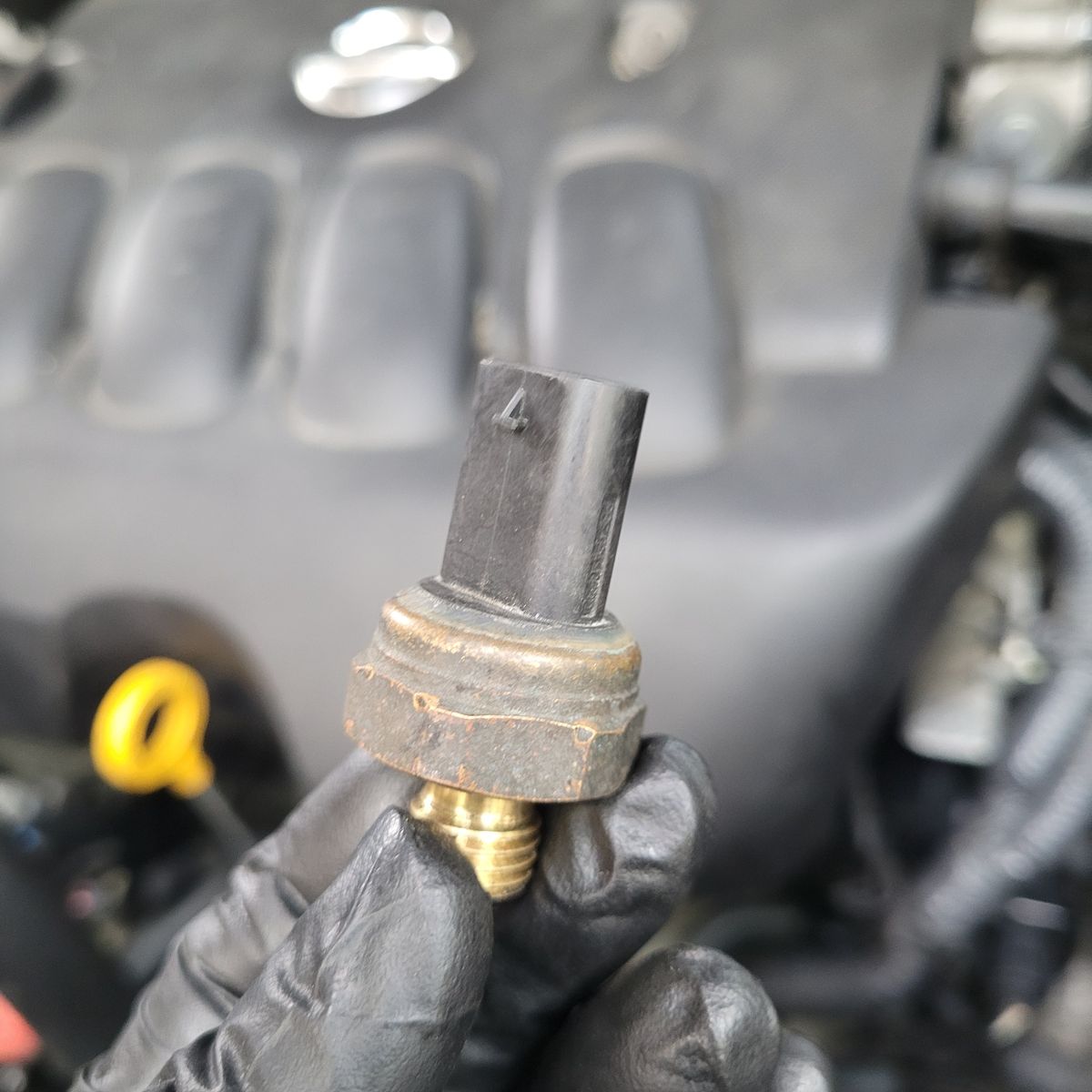What is the engine coolant temperature sensor?

As its name suggests, the car engine coolant temperature sensor (or car engine coolant temperature switch) measures the temperature of your car engines coolant temperature. It then sends this information to the car engine computer, where changes are made to the engine’s timing and fuel injection calculations. This allows for optimal engine performance, fuel efficiency and engine emissions.
Additionally, the car engine coolant temperature sensor helps to protect the engine from damage when it is overheating. When the car engine coolant temperature sensor detects high engine temperatures, the cars engine computer will scale back engine power, resulting in less heat being produced.
Learn more about the coolant temperature sensor >
Symptoms of a faulty engine coolant temperature sensor:
Irregular temperature levels – You may notice that your car’s temperature gauge is fluctuating as you drive. This can be caused by the engine coolant temperature sensor sending inaccurate information to your car’s engine computer.
Increased engine damage from overheating – The engine coolant temperature sensor helps to prevent the engine overheating by sending signals to the engine car computer which can then put the engine into “limp home mode”if the engine coolant temperature sensor detects overheating. If the engine coolant temperature sensor is faulty it can can result in the engine overheating quickly without warning to the driver via the temperature sensor gauge or check engine warning light on the dash. This lack of warning can lead to significant engine damage.
Poor fuel economy – A failing coolant temperature sensor will often send a continuous “cold” signal to the car’s computer. This will result in the computer thinking the engine is cold and keeping the engine fuel injectors open for longer putting more fuel into the engine. This will cause fuel to be wasted, resulting in higher fuel consumption and rough engine running.
Black smoke from exhaust – A common side effect of a faulty engine coolant temperature sensor and poor fuel economy is black smoke coming from the exhaust. When fuel is unable to burn properly, it leaves via the exhaust as black smoke.
Check engine light – A faulty engine coolant temperature sensor can affect your car’s air/fuel ratio. When the engine sensors detect this change, the check engine light can turn on and fault codes / trouble codes can be stored in the car engine computer memory.
New Engine Coolant Temperature Sensors & Replacement in Hamilton
Is your car’s engine coolant temperature sensor in need of replacement? If so, we can help!
At Grimmer Motors, our skilled, honest and talented mechanics can examine and replace the engine coolant temperature sensor. This allows for improved fuel efficiency and correct temperature readings. If the sensor isn’t the cause of your car’s problems, we can quickly diagnose and fix other issues.
For engine coolant temperature sensor diagnostics and new engine coolant temperature sensors in Hamilton, contact Grimmer Motors today!

